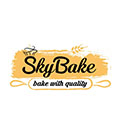Why Register?
- List Your Business
- Business Matchmaking
- WhatsApp Chat
- Personal Messaging
- Showcase Your Products

Product Pictures
Established in 1920, National Foods is a diversified, Zimbabwe Stock Exchange listed conglomerate, which has grown to be one of the largest manufacturer and marketer of food products in Zimbabwe and the Southern African region. Our four flagship brands: Gloria, Red Seal, NF Stockfeeds and Natpak are easily recognizable on the Zimbabwean marketplace.
Our manufacturing plants and allied processes are strategically located throughout Zimbabwe and are based on a quality system designed to guarantee supply of high quality and value added products. The Group’s quality policy is to manufacture and market, at all times, brands that are competitive and satisfy customer expectations in line with our vision to be "The Supplier of Choice"
National Foods’ focus is to enhance stakeholder value through the development and implementation of innovative, measurable and time bound strategies. The Group has a vibrant corporate social investment programme. Through our network of depots, we undertake several community centered social responsibility activities especially designed to improve the quality of life of the underprivileged and the elderly.
As we celebrate over 87 years in business, we continue with our commitment to the relentless pursuit and delivery of high quality, value added brands to consumers in line with our mission:
‘To be the preferred supplier of quality branded products and services which satisfy the needs of our customers and consumers’.
NATIONAL FOODS - THE NATIONAL RECIPE
The history of National Foods Ltd is the history of milling in Zimbabwe. National Foods embodies eighty six years of milling experience. Today the company provides the resources, technology and manpower necessary to feed millions of people. In addition to our maize milling operations we also market a wide range of food products including flour, sugar beans, oat meal, rice and salt as well as a variety of pre-packed items, canned products and stockfeeds.
A sophisticated sorghum and barley malting plant provides malts for local brewers, whilst the oil plant supplies the market with the Red Seal and Home Pride brands of cooking oil. In addition to substantial supplies of basic foodstuffs, the company also supplies the donor community with toll milling services.
Because of our size, we are able to maintain complete flexibility in fulfilling the requirements of our numerous customers including manufacturing and packaging to client specifications. National Foods employs over 2 500 people, all of them dedicated to producing top quality food products. The company provides numerous benefits such as pension and insurance schemes, annual bonuses, long service awards, educational scholarships and subsidised canteen facilities as well as a Worker's Trust which enables the Group's workers to participate in the profits and ownership of the business.
To maintain its diverse operations National Foods has in place the necessary support mechanism including workshops, bakery schools, laboratories, clinics, technical consultants and a comprehensive human resources division. The changes in the market place dictated a cultural shift from a production driven to a marketing driven operation and this is supported by a series of professional development programmes, which have equipped both management and staff with the necessary skills to tackle any business challenges which may lie ahead and to adapt to change which is the only constant in today's highly competitive environment.
National Foods also actively pursues export opportunities and agricultural seasons enabling many of its products help to meet the increasing dietary needs of Zimbabwe's neighbours. Substantial supplies of basic foodstuffs have been provided to donor agencies while toil milling to over 75 000 tonnes of maize on behalf of the United Nation's World Food Programme has been done. The company is also supplying other non-governmental organisation such as the Zimbabwe Red Cross Society with grain for its hunger alleviation projects. Food packs of rice, salt, beans and oil are also prepared for continental-wide distribution.
In its quest to add value to its product range, the Company works closely with organisations in all walks of life applying its first-world capabilities.
QUALITY ASSURANCE PROGRAMS
Hazard Analysis Critical Control Point (HACCP)
Producing safe, highest quality products for our consumers together with rigorous implementation of the underlying food safety legislation, is the foundation on which the high reputation of NFL name and brands are built.
To enhance its reputation as The Supplier of Quality Branded food products, National Foods is currently implementing the Hazard Analysis Critical Control Point quality management system. This is a food hygiene and safety management system which gives our customers the assurance that the food they buy and consume is safe and of high quality.
Good Manufacturing Practices (GMP)
All NFL products are produced in line with the stringent requirements of Good Manufacturing Practices (GMP) which ensures that products are consistently produced and controlled to the quality standards appropriate to their intended use and as required by all stakeholders.
GMP covers all aspects of the manufacturing process defined manufacturing process, validated critical manufacturing steps, suitable premises, storage, transport, qualified and trained production and quality control personnel, adequate laboratory facilities, approved written procedures and instructions, records to show all steps of defined procedures taken, full traceability of a product through batch processing records and distribution records, and systems for recall and investigation of complaints.
Total Quality Management- Our Guiding Principle
The guiding principle is that quality is built into a product, and not just tested into a finished product. Therefore, the assurance is that the product not only meets the final specifications, but that it has been made by the same procedures under the same conditions each and every time it is made.
This involves controlling the quality of the facility and its systems, controlling the quality of the starting materials, controlling the quality of production at all stages, controlling the quality of the testing of the product, controlling the identity of materials by adequate labeling and segregation, controlling the quality of materials and product by adequate storage, etc.
All of these controls must follow prescribed, formal, approved procedures, written as protocols and /or SOPs, describing all the tasks carried out in an entire manufacturing and control process.



























